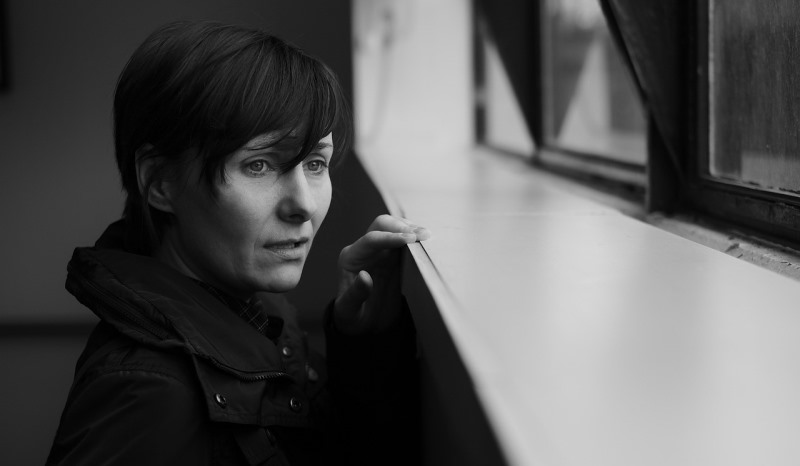We’ve all been there.
A relationship dies and the next ritual we ask for is the funeral called relationship closure.
Only it never happens.
Image source: Flickr
When someone close to us dies, we attend a funeral where a series of rituals ensure that the loss sinks in, people talk of what they loved about the person who is gone, and other near and dear ones take care of us so we find it just a wee bit easier to grieve. This shared process helps to register the immutable change, and although we never quite forget the attachment, we ease out the pain of loss.
Suggested read: Why none of us need the forever love…
But when our relationship with a special someone dies, we hash out the process of not accepting the loss, keep brooding over things that went wrong, find comfort in cutting everybody off, and even try to clutch on to the illusion of relationship closure by embarking on our self-sanctioned series of rituals – burning the love letters, dig into a tub of Ben and Jerry’s, get a haircut, or even photoshop him out of pictures to ease the pain of loss!
And yet, it takes just the one song that was your together-song on the radio to bring back the flood of emotions gushing in.
Image source: Google, copyright-free image under Creative Commons License
Ever wondered why?
Because relationship closure is a false funeral. Nothing that you built together, experienced together, and LIVED together ever dies.
It lives on – not in time, but in memories, in YOU!
Image source: Pixabay, under Creative Commons License
When we are in a relationship with another, our self-concept grows as a result of being with another. We grow to experience things together, live them together, and hence, build an entire aspect of self that results as an effect of being involved with the person. And to seek relationship closure, then, would mean to eliminate or completely distance oneself from this self.
Possible much?
Thought so.
Image source: Pixabay, under Creative Commons License
And yet, most of us set out to seek this elusive unicorn called relationship closure from the fields of the past, because we tend to confuse closure with having the last word, getting definitive answers as to what went wrong, the desire for sketching a beginning, middle, and an end, or simply feeling better by knowing that the ex still misses them or regrets the fallout.
Does it help?
Heck NO!
Image source: Pixabay, under Creative Commons License
What good can come from sticking it to the ex? A temporary feel-good that ends as soon as you turn your back on them.
What could you possibly achieve by seeking answers? Maybe lies. Maybe the hurtful truth. Or maybe a false hope!
What would a re-arranging of the past do for you? At best, muddle up the pieces of the puzzle and confuse you more.
Suggested read: Why your true soul mate will never complete you
And last, what could the ex’s regret or feeling of missing you offer you? A false validation of your self-worth!
Of course, relationship closure is most closely associated with knowing why the relationship ended and no longer feeling any pain or attachment. But that’s a good definition – in theory. In practice, our human-ness trumps the constraining two-word label.
Image source: Pixabay, under Creative Commons License
How can the process of protesting (the end of the relationship), despairing and grieving (the loss of the loved one), accepting, and coming to terms (with the reality) and reorganizing ‘meaning’ of their lives without the loved one be captured in mere two words – relationship closure?
It takes weeks, months – years, even – to do it. And yet, it is never complete.
Coz one never can erase the part of self that LIVED the relationship.
One can never make it die.
And hence, no funeral will ever work.
Image source: Google, copyright-free image under Creative Commons License
What is possible, however, is to be okay with not knowing the answers, to be okay with not having the last word, to be okay with the ambiguous end, and to be okay with not knowing for certain how the ex feels about all of this.
Suggested read: Why I don’t want to be ‘the One’ for anyone
Coz being okay with all of this would be to find a meaning in the ‘not-so-clear-end’ and giving it a finality of your own. Being okay with it would mean to be able to tolerate the anxiety, the pain, and the anguish that comes with uncertainty and ambiguity. And thus, being okay with it would mean learning a tad bit more about life and love – it would mean growing!
Image source: Pixabay, under Creative Commons License
And as you grow, you’d come to terms with the loss – sure, you’d love them still – but you will invest lesser and lesser time, feeling, and energy into this part of YOU each day until you diminish the time, feeling, and energy investment to the point of non-existence.
Would you, then, be ready to love again?
YES, you will.
But don’t be surprised if your new love sings to you the same number that was your together-song with your ex.
Because you can close the door on closure – but memories can always come knocking.
Coz there’s no such thing as CLOSURE!
Featured image source: Google, copyright-free image under Creative Commons License




















